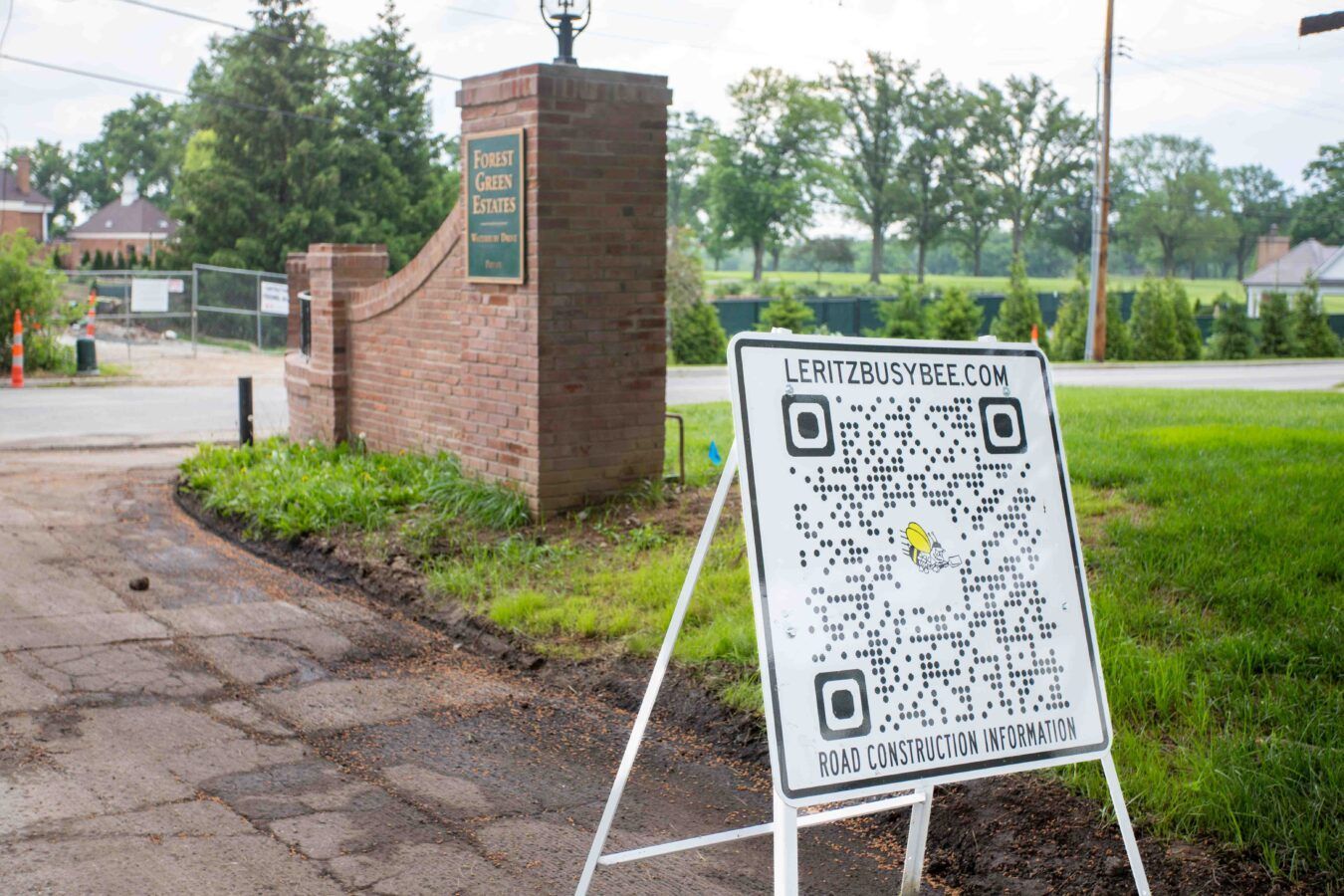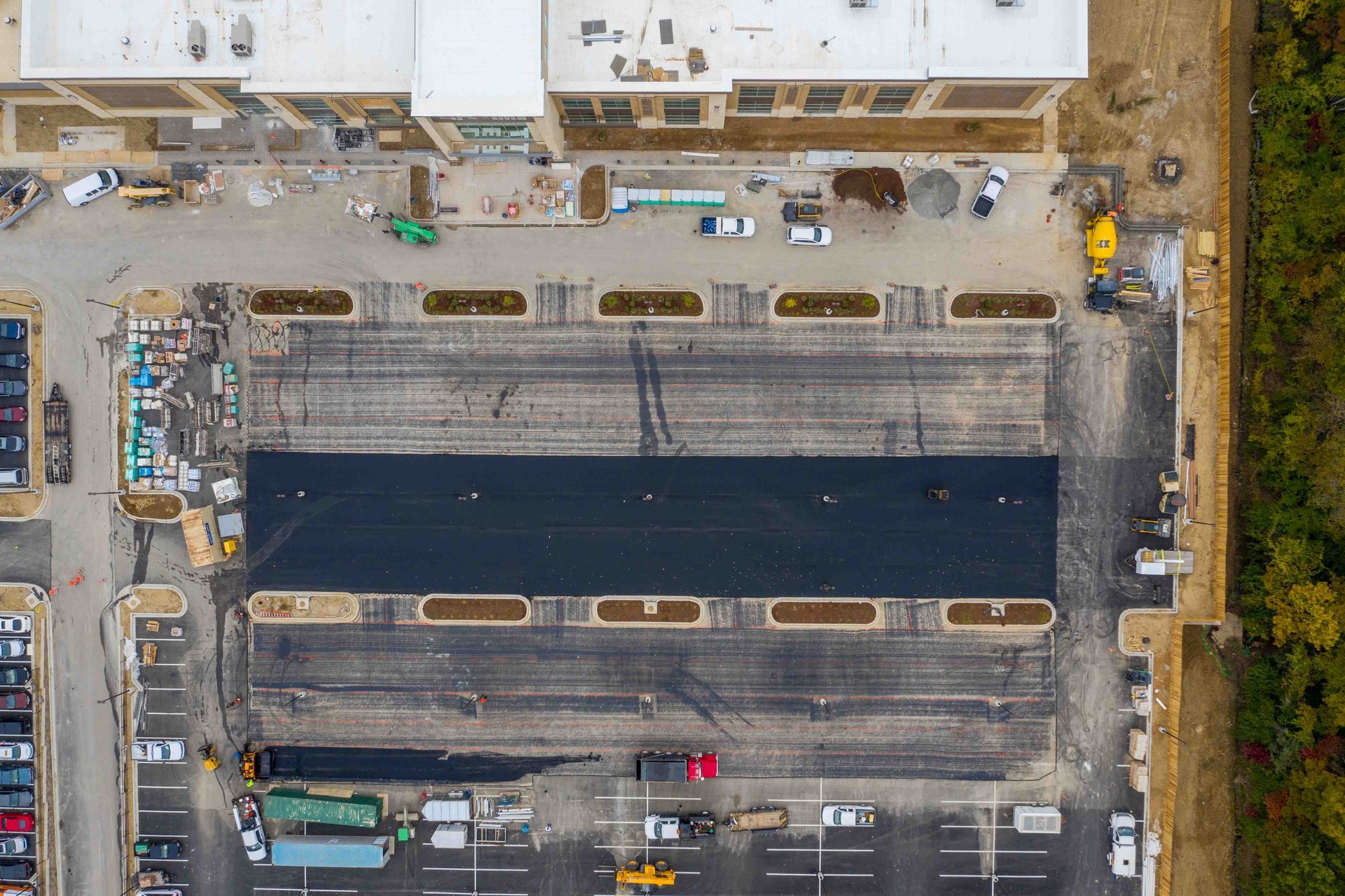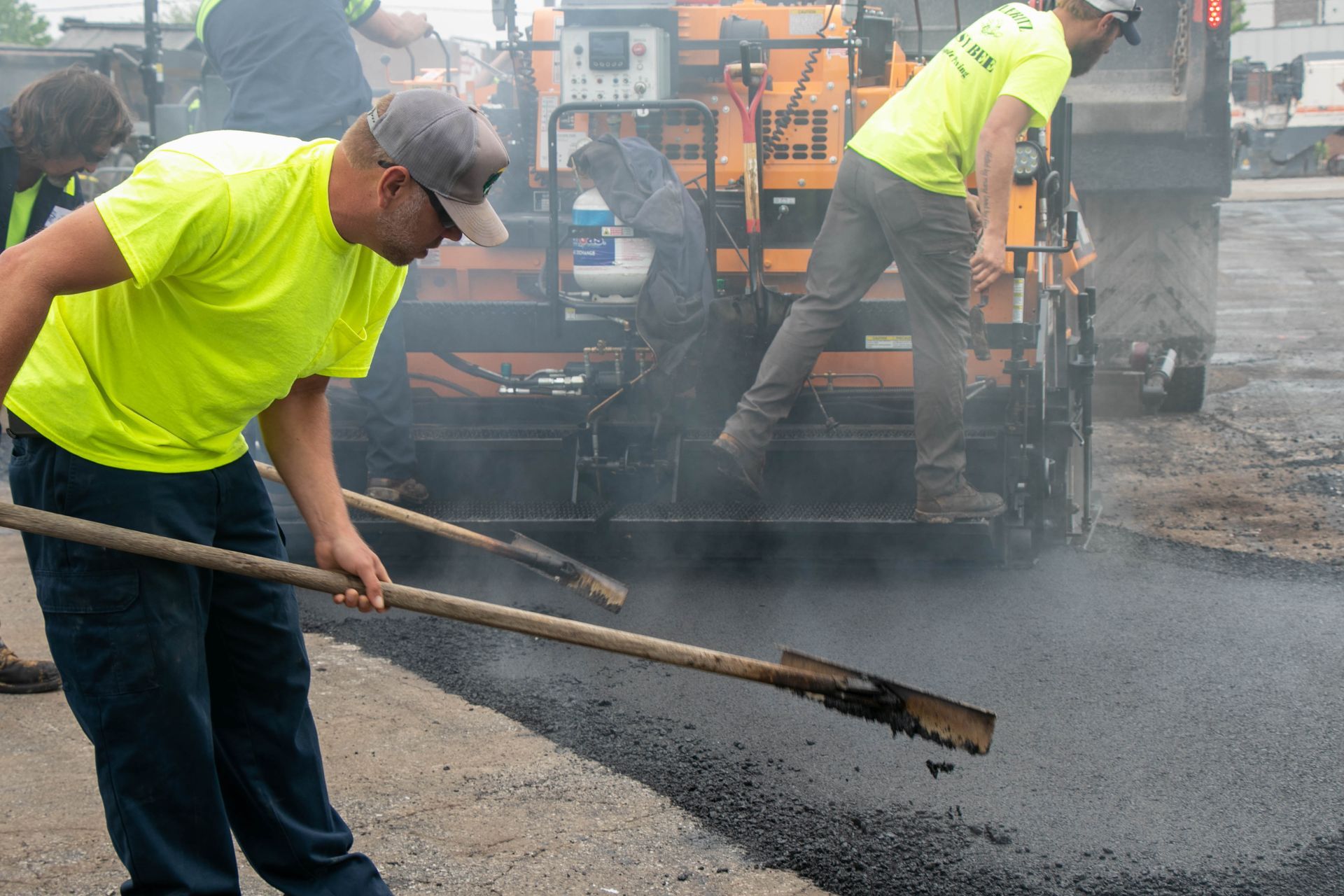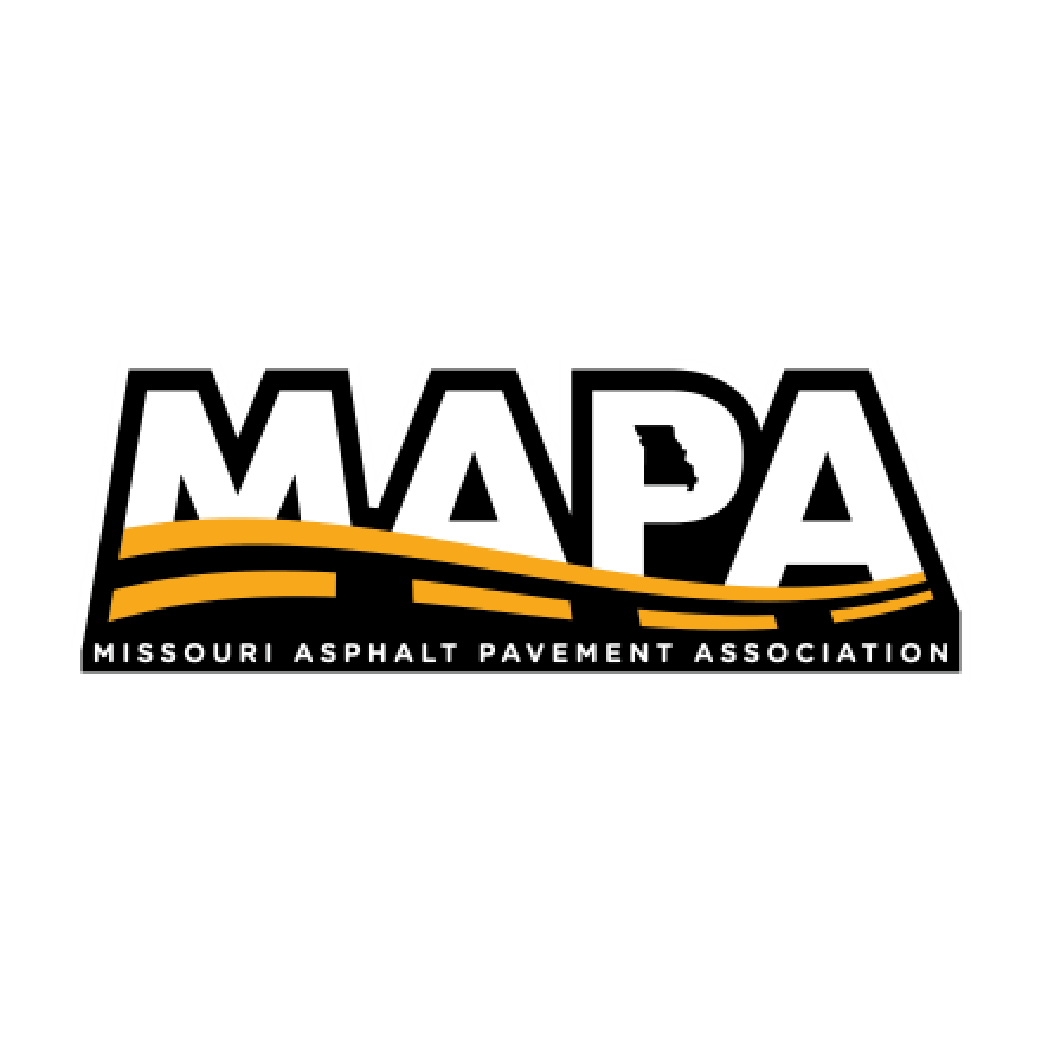Asphalt Paving Safety - Protecting Crews, Clients, and Communities
When it comes to commercial asphalt paving, safety must always come first.
A freshly paved parking lot or roadway may improve function and curb appeal, but laying asphalt involves heavy machinery, hot materials, and active job sites that can pose risks to crews, property owners, and the public if not handled properly.
Whether the project is at a shopping center, municipal roadway, or industrial property, keeping safety front and center ensures smooth operations and reduces the chance of costly accidents or disruptions.
Below are essential safety reminders for your paving team, property managers, and the community around your work zone.
Safety for Your Asphalt Crew
Your paving crew is at the heart of every project, and their safety starts with preparation and awareness.
- Personal Protective Equipment (PPE): Crews should always wear the proper gear: hard hats, reflective vests, gloves, protective eyewear, and steel-toe boots. These basics help prevent injuries and ensure visibility on busy sites.
- Heat and Material Hazards: Asphalt is applied at extremely high temperatures. Workers must be trained to handle hot mix safely in order to avoid burns. Hydration and breaks in shaded areas are essential to prevent heat stress during long summer days.
- Heavy Equipment Awareness: Pavers, rollers, and skid-steers require careful operation and clear communication. Hand signals or radios should be standard practice to keep operators and ground crews coordinated and out of each other's blind spots.
- Daily Safety Briefings: Before every shift, a quick "toolbox talk" ensures that all workers understand the day's goals, hazards, and safety expectations. These briefings set the tone for a disciplined and attentive crew.
By focusing on these measures, companies protect their teams and boost efficiency and morale.
Safety for Property Owners and Facility Managers
Safety isn't just the responsibility of the paving crew. Property owners and facility managers also play a key role in preparing and maintaining a safe environment before, during, and after paving work.
- Site Preparation: Remove vehicles, dumpsters, or obstacles that could interfere with paving equipment. Marking off alternative access routes ahead of time prevents last-minute confusion.
- Clear Communication: Tenants, employees, delivery drivers, and contractors should all be notified well in advance about paving schedules, parking restrictions, and traffic detours.
- Restricted Zones: Areas under construction should be clearly blocked off. Unauthorized entry risks accidents and can damage fresh pavement before it cures.
- Pedestrian Safety: Temporary signage and barricades can guide foot traffic safely around the work zone, reducing liability concerns for property owners.
When property managers take proactive steps, the paving project stays on schedule and ensures the safety of everyone who uses the facility.

Safety for the Public and Surrounding Community
Commercial paving projects often occur in high-traffic areas, so carefully managing the public's safety is critical.
- Traffic Control: Properly placing cones, barricades, and flaggers help guide vehicles around the site and prevent confusion, which is especially important for roadwork or busy retail locations.
- Pedestrian Protection: People walking near the site may be unaware of hazards. Crews should use clear signage, fencing, or caution tape to protect pedestrians from machinery and hot pavement.
- Environmental Considerations: Asphalt projects can create dust, noise, and odors. Communicating with nearby businesses or residents ahead of time minimizes frustration and builds goodwill.
- Municipal Coordination: If paving impacts public streets or access points, coordination with local municipalities ensures that detours and permits are appropriately managed.
Prioritizing public safety prevents accidents and strengthens community trust in the paving process.
The Role of Professionalism in Asphalt Safety
Ultimately, safety comes down to professionalism. Experienced paving contractors understand how to manage risks, follow regulations, and maintain a safe job site for everyone involved.
- OSHA Compliance: Following the Occupational Safety and Health Administration guidelines protects crews from common job site hazards.
- Industry Best Practices: Professionals rely on proven methods that reduce risks and improve outcomes from work zone setup to material handling.
- Proactive Communication: A safety-focused contractor keeps clients and communities informed, addressing concerns before they become problems.
Property owners gain peace of mind by choosing an experienced commercial paving company, knowing that safety is always built into the project plan.

Work With Leritz Busy Bee Paving
When everyone plays their part, paving projects are completed more smoothly, efficiently, and without unnecessary risk.
Safety isn't just about avoiding accidents: it's about protecting people, property, and the community while delivering long-lasting results.
Our Leritz Busy Bee Paving team is here to help with your commercial, municipal, and community asphalt needs. We understand how to get the job done in a timely and safe fashion.
Please note that we do not do residential driveways.
When you trust Leritz Busy Bee Paving with your commercial asphalt projects, you can trust that you will get the best materials and service.
Schedule a consultation with our team of pavement experts today to get started.







